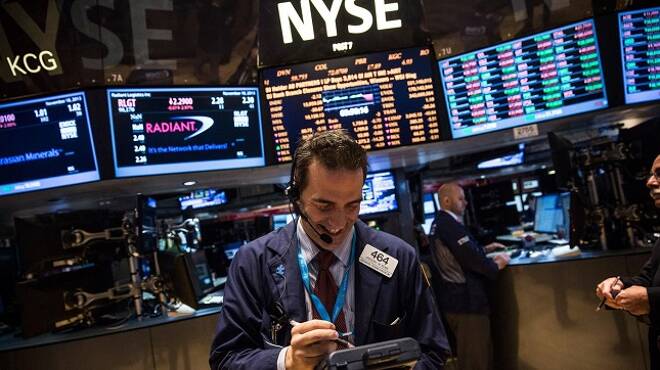Advertisement
Advertisement
Stocks Rebound Despite Dip in Sentment
By:
European stock markets moved higher, after a largely positive session in Asia. The rout in tech stocks started to abate late Monday and markets rebounded
European stock markets moved higher, after a largely positive session in Asia. The rout in tech stocks started to abate late Monday and markets rebounded in Asia, led by a 1.67% rise in the ASX. Japan underperformed and still closed -0.05%, after disappointing confidence data and as investors remain cautious ahead of the Fed announcement this month. In Europe, the DAX is up and back above the 12700 mark, while the FTSE 100 underperformed with a small gain as Sterling moved up from lows, while inflation came in higher than anticipated, although the main focus remains on political events and investors are hoping for signs that May will soften her stance on Brexit.
WTI crude prices are up to $46.20, off the intraday high by nearly 20 cents and below yesterday’s peak at $46.70. Saudi Arabia said today that it would make significant cuts in crude exports in July, although oil market analysts have been downplaying this as this fits the seasonal pattern for the nation to trim exports in July and August due to domestic needs.
Germany’s Schaueble calls for end to “ultra loose” monetary policy. The German Finance Minister said it’s not easy for the ECB, but added that unconventional monetary policy had supported “undue risk taking, policy complacency, capital misallocation and asset-price bubbles and will continue to do so if it is not reversed in time”. He stressed that “we need to exit current monetary policy in a timely manner and return to a more normal curve”. Schaeuble softened the demands by saying that it remains harder for the ECB to react among the challenges of “a very difficult construction of the monetary union”. Still, the pressure from a politician on the ECB won’t go down too well.
Spanish Inflation was Confirmed at 2%
Spanish HICP inflation was confirmed at 2.0% year over year, in line with the preliminary number and down from 2.6% year over year in the previous month. Core inflation fell back to 1.0% year over year, after jumping to 1.2% year over year in April, from 0.9% in March. The effect of the later timing of Easter this year drove the sharp swings over the past three months, like in the rest of the Eurozone. Still, while the headline rate dropped back again in May it remains at the upper end of the ECB’s definition for price stability and far above the Eurozone average.
The BoJ said that the recent slowing in the pace of JGB purchases was simply a reflection of relatively steady yields. The central bank meets this week, announcing Friday, amid widespread expectations for no change in policy settings, though we expect the central bank to follow the ECB’s lead in upgrading its economic outlook while lowering inflation forecasts.
About the Author
David Beckerauthor
David Becker focuses his attention on various consulting and portfolio management activities at Fortuity LLC, where he currently provides oversight for a multimillion-dollar portfolio consisting of commodities, debt, equities, real estate, and more.
Advertisement
